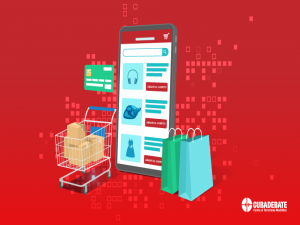
Ernesto Rodríguez Hernández, Deputy Minister of Communications, speaking at the Mesa Redonda, pointed out that although progress has been made in the implementation of e-commerce in recent years, the speed and intensity necessary to generalize this type of commercial activity in Cuba has not yet been achieved.
For Rodríguez, e-commerce is essential to achieve greater efficiency, effectiveness and transparency in public administration and improve the quality of life of citizens.
Among the main potentialities to boost e-commerce in the country, Rodriguez highlighted the existence of two national payment gateways, Transfermovil with more than 4 million users and Enzona with more than 600,000, as well as the use of mobile telephony, which amounts to 7.8 million Cubans with a cell phone and 6.6 million who access the Internet through their phones. In addition, the population coverage of the mobile data signal is over 85%.
Rodriguez has pointed out that in the last five years the use of magnetic cards for electronic transactions has increased, but it is still very limited in some sectors. In the non-state sector, for example, the necessary levels have not been reached.
The official urged to take advantage of and enhance electronic payment features that require reduced levels of investment, as an alternative to the major limitations in the availability of ATMs, especially in the 99 municipalities in the country that do not have ATMs.
The deputy minister highlighted the benefits offered by e-commerce for the payment of services, such as the payment of the electricity bill, 38% of which was paid through electronic channels in 2020.
In addition, new services are being developed, such as the payment of taxes on public documents, which currently cover 75% of these services.
Meanwhile, Julio Antonio García Trápaga, ETECSA's Director of Electronic Commerce, highlighted the success of Transfermovil as an electronic payments project in Cuba, which has allowed the diversification of these payments for more than eight years.
According to Trápaga, practically every Cuban family has between one and two members who use Transfermovil, which shows the extent and depth that this platform is gaining in society. In addition, Transfermovil handles 75 million transactions a month, which represents a significant growth compared to the results of the previous year.
Trápaga also pointed out that the growth trend has been maintained over the last five years and this is a sign of how the service is creating a need among users. In addition, the pandemic has boosted the implementation of electronic payments in online stores, which has been an important step for Cuban society.
Another important aspect is that the payment of taxes and identity and migration procedures has been broadened through electronic payments. In addition, work has been done to improve accessibility for the visually impaired and to include other age groups that did not have a magnetic card with the use of the virtual wallet.
Regarding that virtual wallet, Trápaga explained that it allows all payments for telecommunications services to be made and also enables the inclusion of an important group of the population that until now was not participating in electronic commerce, i.e. the unbanked sector.
"Those people who, due to their age or other reasons, do not have a bank card and until February 18 -which we received the license granted by the Central Bank, Resolution 32, which covers the operations of the virtual wallet- could not make electronic payments, and now they have that possibility."
"Among that population group, he said, are young people between the ages of 18 and 22."
He explained that with this virtual wallet it is also possible to make transfers in both currencies (CUP and MLC). "Through Transfermóvil, between five and six million transfers are made, and most of them are payments being made by natural persons."
In addition, the Bolsa Mi Transfer offers advantages such as being able to control expenses and a variety of opportunities in which we can carry out several operations.
Trápaga announced that work is currently underway on five lines of development, four of which are dedicated to the virtual wallet "making the most out of its versatility."
Inalvis Smith Luben, Deputy Minister of Domestic Trade (MINCIN), explained that e-commerce processes in the domestic trade activity started in 2019, in a first stage by Point of Sale Terminals (POS) in stores where building materials were sold.
In 2020, the use of the QR code was added, "which in terms of investments generates lower costs and more quickness,"The Deputy Minister commented that work is currently underway concerning virtual stores.
"We are determined to expand it not only to the stores of the domestic trade network but also to establishments offering services, in the basic business units of cuisine perfected with the new model that is being applied - framed in the Sabor Cubano platform - not only with the offer of services but also so that the population can make reservations through electronic payment platforms."
Regarding e-commerce between companies, he explained that "this is another project in which MINCIN is involved and which will be deployed this year, starting in the province of Havana, with a wholesale unit and a retail unit; closely linked to the products of the regulated family products set that are marketed in the bodegas, which is where most consumers go."
The expansion of e-commerce in the activity regulated by MINCIN is linked to the computerization process of the consumer registry offices, which is now at 98%, and to the development of the virtual bodega.
"These are modernization and transformation actions that are in accordance with the process of computerization of society," he said.
According to Smith Luben, "in all these processes electronic payment is an essential aspect."
She assured that Havana and Isla de la Juventud are the territories with the highest percentage of QR code deployment as a payment option, through any of the two platforms mentioned above (Enzona and Transfermóvil).
The availability of the use of these payment channels should be expanded in other territories of the country, she said, adding that "both in state and non-state establishments."
MINCIN has focused primarily on state-owned stores, with a network deployment of 82%, bodegas (64%) and chain stores CIMEX (90%) and Tiendas Caribe (36%).
The deputy minister stated that the population must continue to be made aware of the advantages of making electronic payments in bodegas and other domestic commerce establishments.
"It must be understood that electronic payment, electronic commerce, is a necessity, and that this is something that is not temporary."
She explained that consumers should insist on the use of the QR code payment option, and can call the helpline (80022624) if any establishment in the network is not using this option.
"We must also work on reducing the excess of data required from consumers to make electronic payments, which slows down the process and then people find it easier to withdraw cash."
She commented that in order to deepen the banking measures for domestic commerce, communication, training and empowerment of sales force personnel must be insisted upon. "The main promoter of this payment method is the clerk."
Likewise, "we must continue working on the implementation of incentives for sales personnel and bonuses, together with service providers and banking companies."
The common objective, she said, is "to achieve incentives that promote the use of payments through electronic channels."
She also announced that MINCIN has evaluated the possibility of establishing payments exclusively through electronic channels for the leasing of spaces and premises to the state and non-state sectors.
Construction material stores, sales with installment payments of industrial items and lodging services will be maintained, she added.
The deputy minister reported that some 220 million pesos have been sold in the domestic trade network through electronic payments, 1.1% of total revenues. "There are many potentialities.
Promoting electronic payment channels within the improvement of the country's commerce system is an objective that, although it has been stimulated for some years, has not yet reached the expected levels, she said.
The goal, she said, is to ensure that all retail establishments of local subordination -meaning gastronomy, services and the sale of goods- have the option of electronic payment in the QR Code modality.
"It's an awareness issue rather than a technological one."
In the final minutes of the Mesa Redonda, the Deputy Minister of Communications, Ernesto Rodríguez Hernández, emphasized that among the most important challenges to advance at the speed that the country needs in the field of e-commerce is "to achieve a greater enablement and use of electronic payments, especially through the generalization of payments by QR code."
"We must achieve that all commercial establishments in the country -whether state or private- have electronic payments enabled, and also a greater popular control of the issue."
Likewise, "we must continue to work on strengthening the infrastructure of the platforms, ensuring greater security and trust, and making them increasingly user-friendly."
The deputy minister repeated that work must continue to raise social awareness about this, as it is a change of mentality. "It is an awareness issue rather than a technological one."
In this sense, "work must be strengthened at the territorial level in terms of the requirement that electronic payments be available in each entity, in each business, where a service is provided."
Likewise, "there should be an increase in the use of the potential of universities and research centers to develop new e-commerce offers."
He explained that e-commerce also makes it possible to organize logistics issues, to organize storage systems and accounting and financial systems more efficiently.
"We have to radically rearrange electronic payments between legal entities," said Rodríguez Hernández, and argued that "that is where the largest commercial and financial volumes are moved."
The search for incentives that favor the use of electronic commerce both by client and by service provider is not less important, as well as promoting the use of the Virtual Wallet, he said.
Regarding this Transfermóvil feature, he commented that "it multiplies by a factor of n times the possibilities of access to banking services of a society", and therefore the benefits and its use should be expanded at a national level.





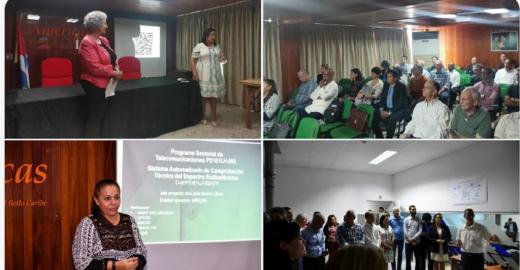
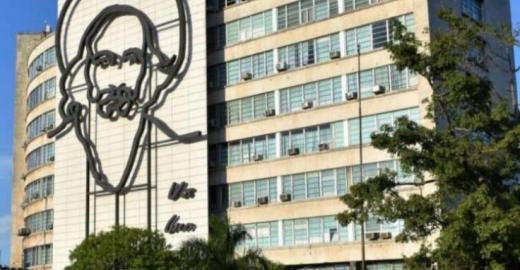






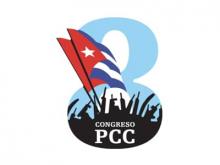
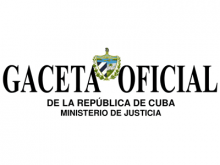
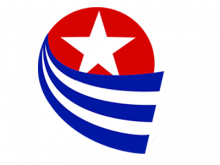
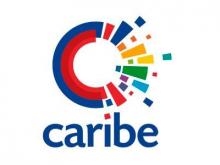
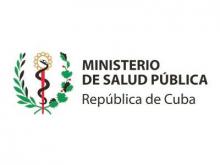

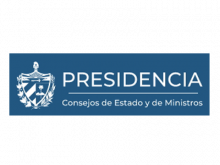

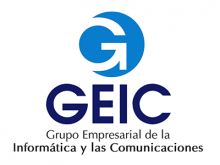
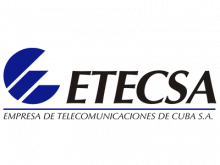
Publicar nuevo comentario